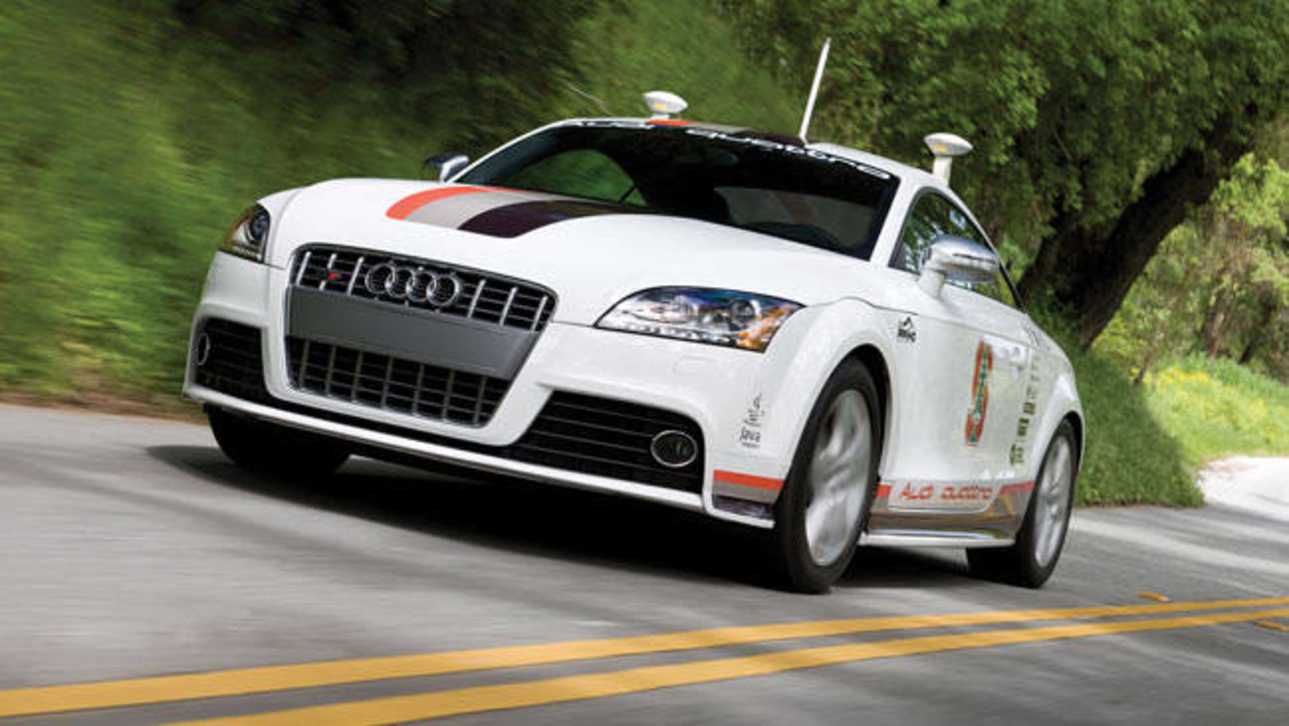Several car companies such as Audi, BMW, Ford, Honda and Volvo have prototype "robotic" models and Google has created an autonomous car that uses their navigation software.
Now an American survey has found that many drivers can't wait to take their hands off the wheel and their feet off the pedals. The US Automotive Emerging Technologies Study shows more than one in three (37 per cent) of drivers would buy a robotic car. According to research by J.D. Power that figure drops to one in five when they realise the cars will cost at least an extra $3000.
The American survey of 17,400 vehicle owners also found interest strongest among men aged 18 to 37 and owners of premium vehicles who may already have experienced autonomous technology such as adaptive cruise control, lane assistance and self-parking, a feature that is now available in Australia even in small cars such as the Ford Fiesta.
Those in favour of robotic cars want them to perform the tedious driving tasks such as commuting and long trips, but also expressed interest in being able to drive themselves for pleasure and in dangerous situations. Those against robotic cars complain that it takes the fun out of driving and is unsafe.
Industry sources say robot cars are still a decade away with the major hurdle being legislation. For example, law makers are uncertain of the legal ramifications for the "driver" if a robot car is involved in an accident. However, Nevada has already legislated for autonomous cars.
As for the safety aspect, former research vice-president at General Motors Larry Burns believes they will be safer. He worked on the GM electric networked vehicle project and has co-written a book called Reinventing the Automobile: Personal Urban Mobility for the 21st Century.
He claims that with proper infrastructure, networked robot cars would never crash into anything. "The intent is to have the self-driven vehicle be the safest driver in America," he said. To satisfy legal requirements there needs to be an alert driver in the driver's seat, to intervene in an emergency, he says.
However, he told last month's National Automobile Dealers Association meeting that networked electric cars would be lighter, have smaller batteries, require less parking space and have "zero percent crashes or deaths." Public acceptance of such safe cars would likely be much higher than one in three.
Your next car will drive itself
J. Christian Gerdes and Sunil Paul talk to The Wall Street Journal about the future of personal transportation and its carbon footprint.





.jpg)
.jpg)

.jpg)
.jpg)





.jpg)
.jpg)
.jpg)









.jpg)


Comments